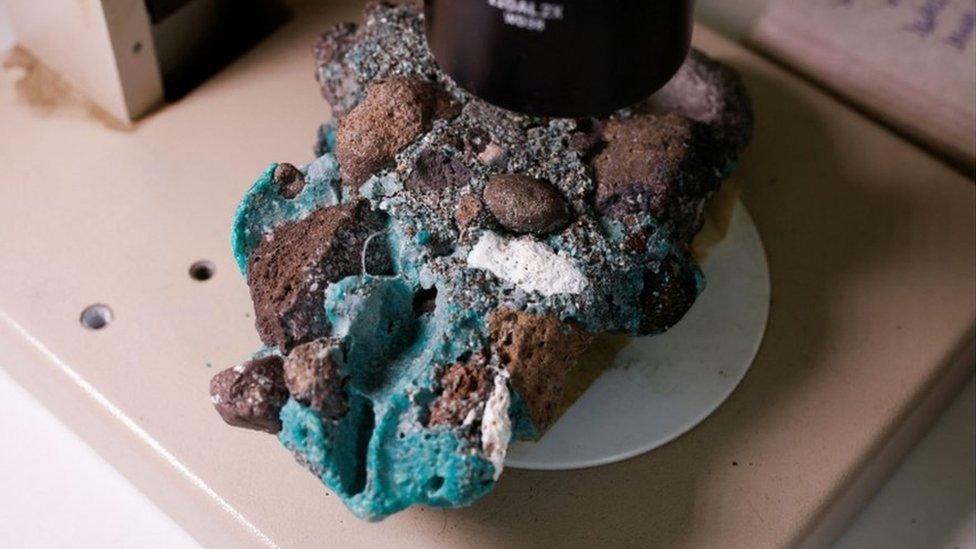Plastic pollution: Scientists find rocks 'made of plastic' on remote island
- Published
- comments

Melted plastic has been found to become intertwined with rocks on Trindade Island
Scientists say they are worried after finding rock made from plastic debris on a remote island in South America.
The discovery was made on Trindade Island, an uninhabited volcanic island off the east coast of Brazil.
Experts say that melted plastic has become intertwined with the rocks and that pollution has mainly come from fishing nets.
The island isn't inhabited by humans, however the site is an important, protected area for green turtles.
What did scientists find?
Trindade Island is located off the east coast of Brazil
After making the discovery, scientists in Brazil decided to run tests to see what kind of plastics were found in the rocks.
They discovered that the rocks were made of a mixture of sedimentary granules and other debris held together by plastic.
Fernanda Avelar Santos, a geologist at Brazil's Federal University of Parana who was involved with the study said: "We identified (the pollution) mainly comes from fishing nets, which is very common debris on Trindade Island's beaches.
"The (nets) are dragged by the marine currents and accumulate on the beach. When the temperature rises, this plastic melts and becomes embedded with the beach's natural material," she added.
The plastic on Trindade Island's beaches mainly comes from fishing nets
Trindade Island is one of the world's most important conservation spots for green turtles, with thousands arriving every year to lay their eggs.
Ms Santos said she was concerned about this new discovery "because pollution has reached geology."
She explained: "The pollution, the garbage in the sea and the plastic dumped incorrectly in the oceans is becoming geological material ... preserved in the Earth's geological records."
